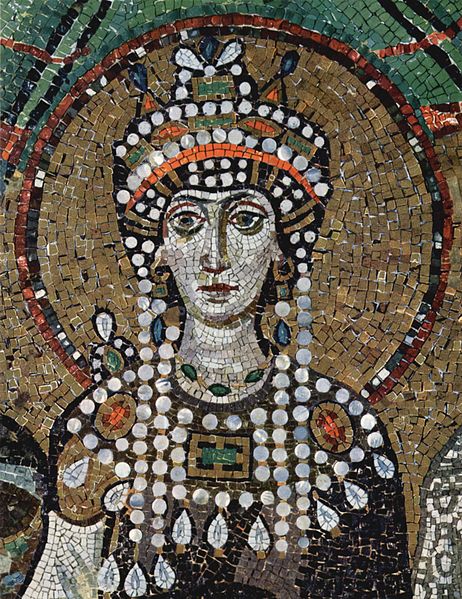Meaning & History
Feminine form of Theodore. This name was common in the Byzantine Empire, being borne by several empresses including the influential wife of Justinian in the 6th century.
Related Names
Other Languages & CulturesTeodora, Dora, Todorka(Bulgarian) Théodora, Théa(French) Dorinda(Galician) Theda(German) Teodóra, Dóra, Dorina(Hungarian) Theódóra, Dóra(Icelandic) Teodora, Dora, Doretta, Fedora(Italian) Teodora, Todorka(Macedonian) Teodora(Polish) Teodora, Dora(Portuguese) Teodora(Romanian) Fedora, Feodora(Russian) Teodora, Dora(Serbian) Teodora, Dora, Dorita(Spanish) Teodora, Thea(Swedish)
User SubmissionTheodóra
Popularity
People think this name is
Images
 Byzantine empress Theodora, from the Church of San Vitale in Ravenna
Byzantine empress Theodora, from the Church of San Vitale in RavennaCategories
Anne Rice characters, asteroids, Civilization VI characters, divine gift, empresses, ends in -ora, female US presidential candidates, feminine forms, gift, Grey's Anatomy characters, Liechtenstein princely family, martyrs, Octavia E. Butler characters, Orthodox saints, queens regnant, saints, The Haunting characters, trendy
Sources & References
- Lexicon of Greek Personal Names, available from https://search.lgpn.ox.ac.uk/browse.html?facet-nymRef=Θεοδώρα.

